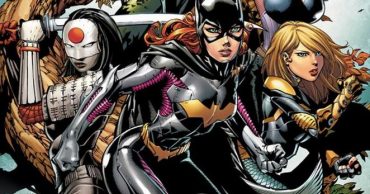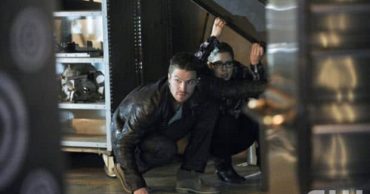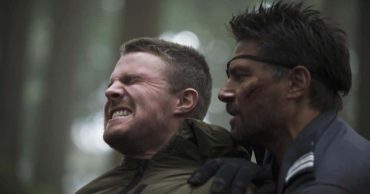
With the 2014-15 TV season coming to a close, TVOvermind is taking a closer look and reviewing the most recent seasons of some of network TV’s biggest shows. We last examined ABC’s “Marvel’s Agents of S.H.I.E.L.D.” Next up: The CW’s “Arrow.”
The first season of Arrow was the story of Oliver Queen becoming a vigilante, while Season 2 of the series showed his transformation from the Hood into a hero. However, Arrow Season 3 decided to take a bold, ambitious next step in the journey of its main character and forced him to ask himself who he truly is without the Arrow. That was the central question of Season 3: “Who is Oliver Queen?” And while Arrow was able to use this theme of identity to produce some of the series richest and most satisfying moments to date, it became clear, particularly during the back half of Season 3, that this was not a solid enough foundation on which to build 22 episodes of television.
Ultimately, what I will remember Arrow Season 3 most for is its ambition. After telling the story of how your protagonist becomes a hero, it can become easy to be complacent, to let him sit idly while those around him change, but he no longer develops. Arrow was not content with doing that, and much of Season 3 was about Oliver confronting what he really wanted in life, who he wanted to be in it, and with whom he wanted to spend it. This year Oliver could no longer hide under the hood, and it helped produce some very strong moments, as he finally was honest about his feelings for Felicity, shared his secret with his sister, and witnessed the strengthening of the team he had started at the very beginning of the series. Personally, it was quite satisfying to watch Oliver ride off with Felicity at the end of this third season because of everything he has given up in recent years. He knew the city would be protected, that he no longer had to be its hero anymore because had served as an inspiration for so many others to become ones themselves, and he could embrace his new life and finally be happy. However, it was a bumpy road to get to this conclusion.
The two main problems with Arrow Season 3 are linked together and were two of the characters that fans (including myself) were looking forward to seeing most before the season officially began last fall. I’m talking, of course, about Ra’s al Ghul and Malcolm Merlyn, as the presence of both men caused many of the most convoluted, out-of-character moments of Season 3.
While the first few appearances of Ra’s were thrilling, particularly his duel with Oliver in “The Climb,” he ultimately became a villain whose motivations weren’t clear or convincing. Sure, he wanted Oliver to be his successor because the prophecy stated that he should be, but he ended up using so much time and resources to try convince Oliver to join the League, when in the season finale, it was revealed that he may have had ulterior motives all along. Unlike Malcolm in Season 1 or Slade last year, the very murky reasoning behind the actions of Ra’s made him a less compelling figure, and unfortunately, Matt Nable wasn’t able to carry the mystique he featured in his first couple of episodes with him throughout the entire season.
Similarly, Malcolm was also tied to many controversial decisions throughout Arrow Season 3, and I’m not even talking about his own. For much of this year, it seemed as if the writers were searching for ways to keep John Barrowman on the show (since he was a newly promoted series regular), and while I greatly enjoy Barrowman’s performance and value Malcolm as a “frenemy” of sorts to Team Arrow, him being on the series should not be at the cost of the integrity of the show’s characters. Multiple times this season, Oliver made incredibly questionable decisions that were influenced by Malcolm, whether he was protecting him or utilizing his knowledge as part of a teacher-student-like relationship. And, yes, while Malcolm certainly possessed value due to the information he had regarding the League of Assassins, it still doesn’t feel honest or real that the Oliver that we’ve seen throughout these three seasons would let Malcolm go and, particularly, be the leader of the League, after he manipulated Thea into killing Sara. That crime should not have gone unpunished.
Yet while Ra’s and Malcolm proved to be major weaknesses in Arrow Season 3, ones that unfortunately attached themselves to major storylines, thus bringing other characters down with them, there were also a lot of positives when it came to character development over the course this year, particularly in regard to Arrow‘s supporting cast. Felicity and Diggle definitely got their moments to shine, as they both struggled with losing Oliver and how to continue to press on without him, but it was Roy, Thea, and Laurel that experienced the most improvement this season, as Oliver’s absence, or the threat of losing him yet again, caused each of them to step up and embrace who they are. Roy not only helped save the city as Arsenal but also sacrificed himself in order to prevent Oliver from going to prison, repaying his mentor for everything he had done to protect him. Thea took all of Malcolm’s training and channeled it into becoming a force for good, instead of a mischievous villain, despite her father’s constant manipulation of her (if Thea ever forgives Malcolm, I won’t forgive Arrow). And lastly, Laurel did not simply take up the mantle Sara left behind after her death but became an all-new hero in Black Canary, a identity that was not a way for Laurel to hide her real self but a tool in which she could finally show her true nature.
So while Arrow did somewhat lose its own identity in a season in which its hero was seeking his, the CW series still did what it does best in many episodes: it continued to develop the relationships between the three core members of Team Arrow in compelling ways; it put Oliver in a position in which he needed to change and grow in order to find peace and happiness; and it still provided some of the best actions sequences on not just the broadcast networks but TV in general. There were plenty of issues with Season 3, from what I mentioned above to the flashbacks (what even happened in Hong Kong?) to characters keeping too many secrets from each other, but Arrow still found ways to impress me this year, even in its most uneven episodes. Here’s hoping Season 4 is more fun, more thrilling, and more consistent, so that I can yet again call one of my favorite shows on TV also one of the best ones.
[Photo credit: Diyah Pera/The CW]
 Follow Us
Follow Us




I don’t,get it ras motives don’t make sense but slades do, slades vendetta makes no sense the only way you can rationalize it Slade’s nuts, ras wanted Oliver because,he,conquered death,Damian was a,bonus what is so hard to understand about that? With malcom a deals a deal and malcom wouldn’t have helped Oliver if there wasn’t something in it for him , remember Oliver wasn’t the character he was in the previous two seasons he was a shell who didn’t think he had a future.